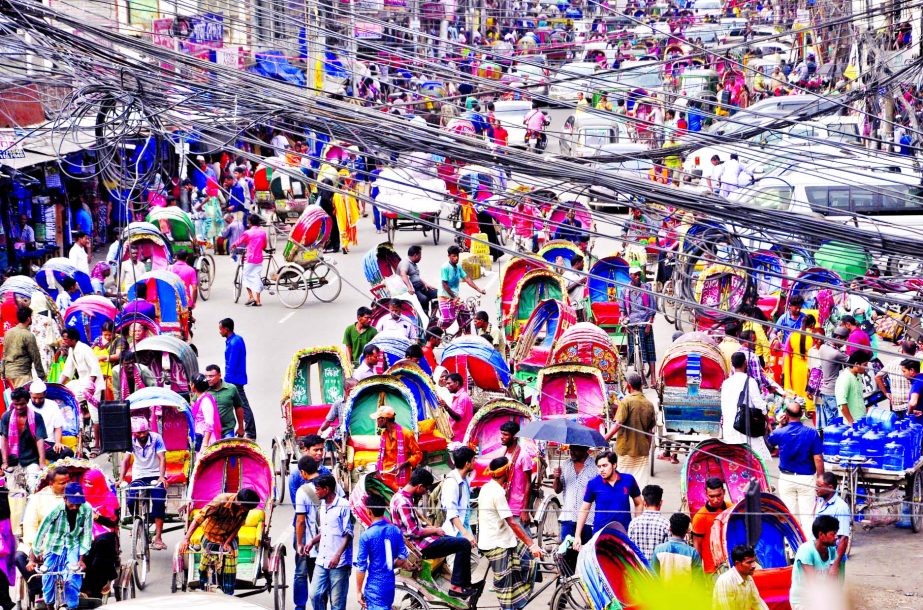
UNB, Dhaka :
Though Bangladesh wants to become a middle-income country by 2021 with its fast growing economy, its capital is still clogged with rickshaws, a symbol of poverty, thanks to the city authorities’ indifference to develop a mass transport system and work out an effective plan to get rid of the slow-moving three-wheelers.
Talking to UNB, urban expert and former UGC chairman Prof Nazrul Islam, CPD distinguished fellow Prof Mustafizur Rahman and BUET professor Dr Sarwar Jahan said a modern and mortised transport system should be there in the capital city keeping pace with the country’s economic progress.
They said, lack of a feasible long-term urban transport plan as well as a comprehensive phase-out programme, weakness in transport management and enforcement of law and inadequate mass transport are the reasons why the capital cannot get rid of rickshaws.
They said, the average speed of motorised vehicles on the city streets is about 20km per hour, but those are forced
to run within the speed of 7-8 km an hour because of the movement of uncontrolled rickshaws on important thoroughfares.
According to the transport experts, the government should focus on making the mass transport system stronger with proper planning, enforcing traffic laws and ensuring effective traffic management and better use of the existing roads, railways by banning rickshaws on main city streets to reduce the capital’s traffic jams and restore discipline in transport sector.
Though Bangladesh wants to become a middle-income country by 2021 with its fast growing economy, its capital is still clogged with rickshaws, a symbol of poverty, thanks to the city authorities’ indifference to develop a mass transport system and work out an effective plan to get rid of the slow-moving three-wheelers.
Talking to UNB, urban expert and former UGC chairman Prof Nazrul Islam, CPD distinguished fellow Prof Mustafizur Rahman and BUET professor Dr Sarwar Jahan said a modern and mortised transport system should be there in the capital city keeping pace with the country’s economic progress.
They said, lack of a feasible long-term urban transport plan as well as a comprehensive phase-out programme, weakness in transport management and enforcement of law and inadequate mass transport are the reasons why the capital cannot get rid of rickshaws.
They said, the average speed of motorised vehicles on the city streets is about 20km per hour, but those are forced
to run within the speed of 7-8 km an hour because of the movement of uncontrolled rickshaws on important thoroughfares.
According to the transport experts, the government should focus on making the mass transport system stronger with proper planning, enforcing traffic laws and ensuring effective traffic management and better use of the existing roads, railways by banning rickshaws on main city streets to reduce the capital’s traffic jams and restore discipline in transport sector.

